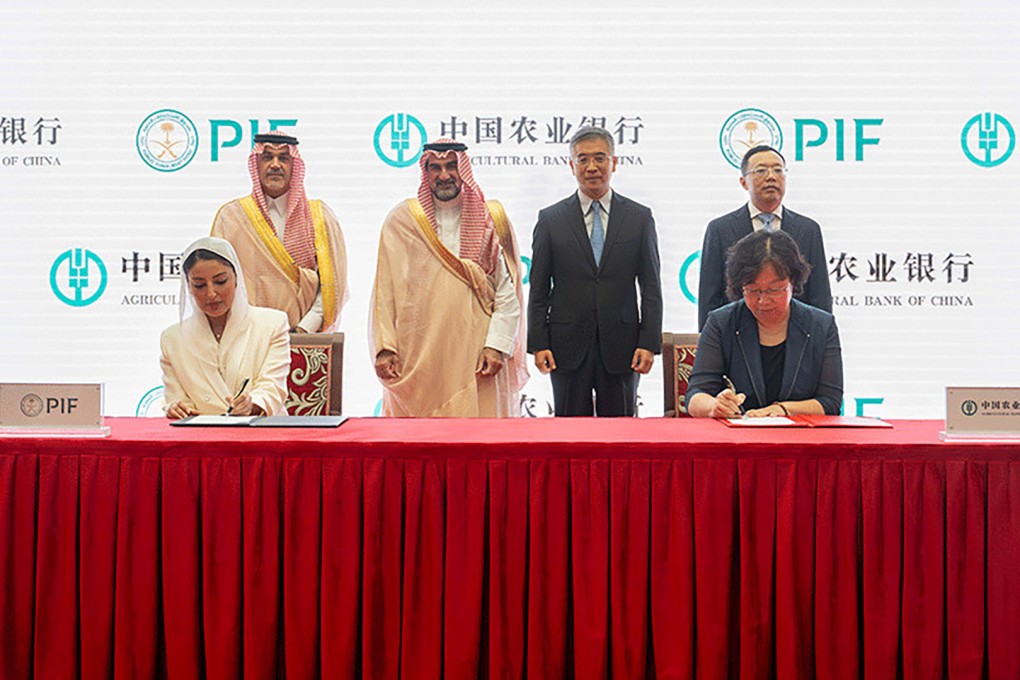Saudi Arabia wealth fund signs US$50 billion agreements with 6 top Chinese institutions
- Agreements with top financial institutions including BOC, CCB and ICBC aim to promote two-way capital flows through both debt and equity

Saudi Arabia’s sovereign Public Investment Fund (PIF) and six of China’s top financial institutions have signed investment agreements totalling US$50 billion in a move that significantly strengthens financial and business ties between the two countries.
The amount represents 1.5 times China’s total foreign direct investment inflow in 2023.
The agreements are with Agricultural Bank of China (ABC), Bank of China (BOC), China Construction Bank (CCB), China Export and Credit Insurance Corporation (SINOSURE), Export-Import Bank of China (CEXIM) and the Industrial and Commercial Bank of China (ICBC), the PIF said in a statement on Thursday.
Not many details were revealed in the agreement. The partnerships seek to promote two-way capital flows between the countries through both debt and equity, and come as part of PIF’s strategy to “foster institutional partnerships globally”, the statement said. It was not immediately clear where the amount of money would be used.
In another move to deepen ties between Saudi Arabia and Greater China’s financial markets, an ETF tracking Hong Kong’s benchmark Hang Seng Index is currently under development to offer investors in the Middle East the opportunity to tap some of Hong Kong and mainland China’s largest companies.